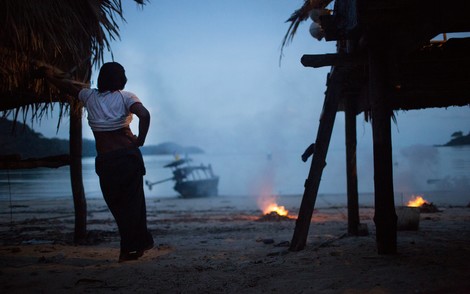Your podcast discovery platform
Curious minds select the most fascinating podcasts from around the world. Discover hand-piqd audio recommendations on your favorite topics.

piqer for: Climate and Environment Global finds
Andrea is a writer and researcher based out of Chicago. Andrea has a Bachelor's degree in environmental science from The Ohio State University and a Master's in Environmental Planning and Management at National Taiwan University, where she specialized in climate adaptation and urbanization. She writes for TaiwaneseAmerican.org, and sends out a biweekly newsletter which includes articles on politics, environment, identity, and intersections of race, class, and gender (http://eepurl.com/bPv-F5).
Indigenous Stories Give Disaster Warning Signs to Help People Survive
"Shortly before 8am on 26 December 2004, the cicadas fell silent and the ground shook in dismay. The Moken, an isolated tribe on the Andaman Islands in the Indian Ocean, knew that the Laboon, the ‘wave that eats people’, had stirred from his ocean lair. The Moken also knew what was next: a towering wall of water washing over their island, cleansing it of all that was evil and impure. To heed the Laboon’s warning signs, elders told their children, run to high ground."
After the devastating tsunami, relief workers found that remote villagers had low death tolls compared to areas in the south where many residents were not indigenous and had no stories to warn them of the oncoming wave.
Indigenous cultures around the world have different myths describing natural phenomenon, from thunder and lightning to volcanic eruptions. Often, these myths have clues in them telling how people might survive oncoming natural disasters, and scientists are finally paying attention to how these stories transmit important information. Patrick Nunn, a geologist, spent time in Fiji linking myths islanders told him to the geologic origins of the South Pacific islands. Others told stories of how to survive tsunamis that occur after earthquakes.
These stories have always been important, but have gained new respect with climate change impacts now always looming overhead. "On Fiji, 25-year-old Betty Barkha is traversing her homeland to gather stories of how locals are responding to increased cyclones and flooding caused by our changing climate." Goes to show the wisdom of indigenous peoples and the importance of knowing your landscape.

thanks for this piq, really interesting reading!